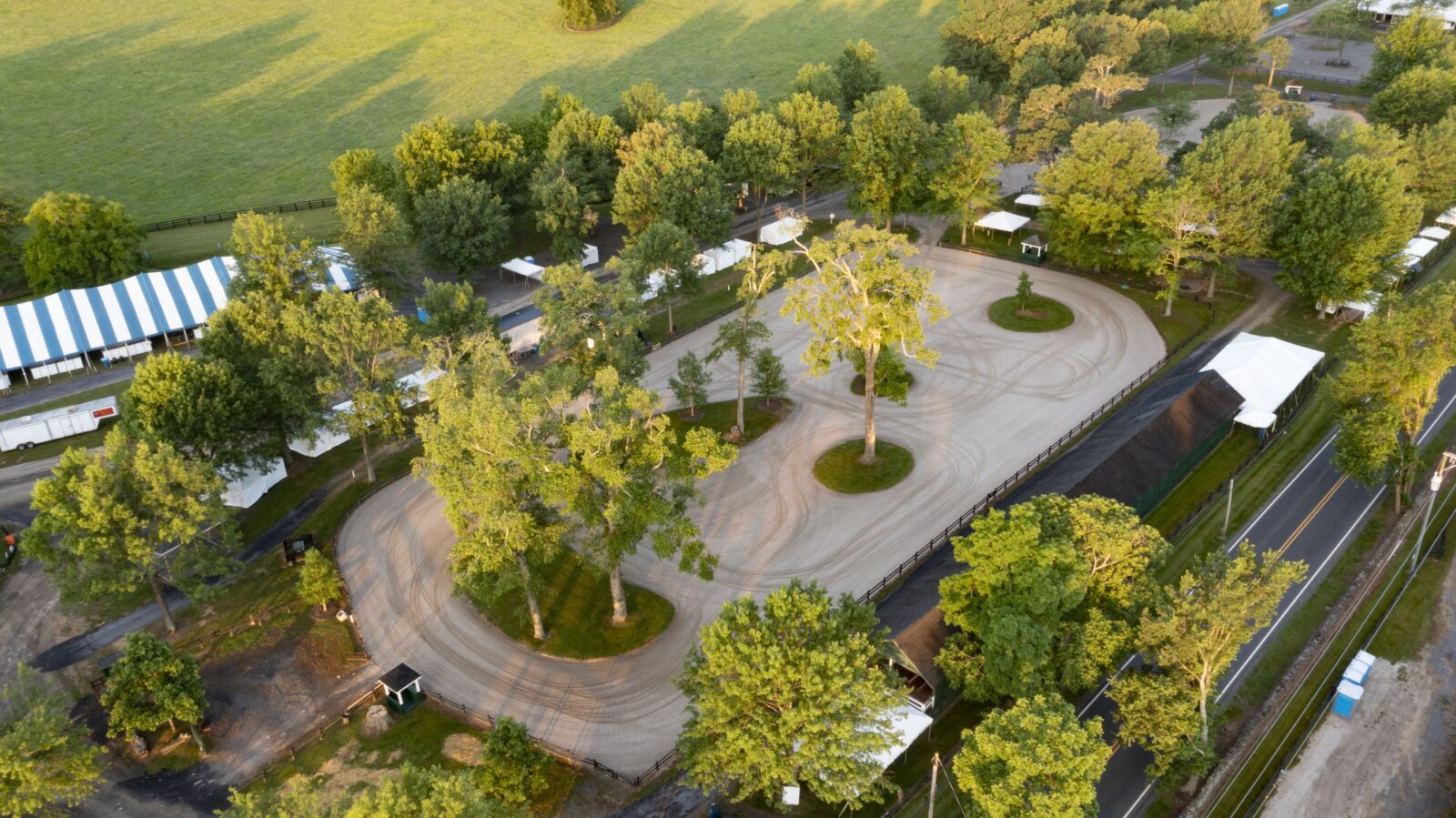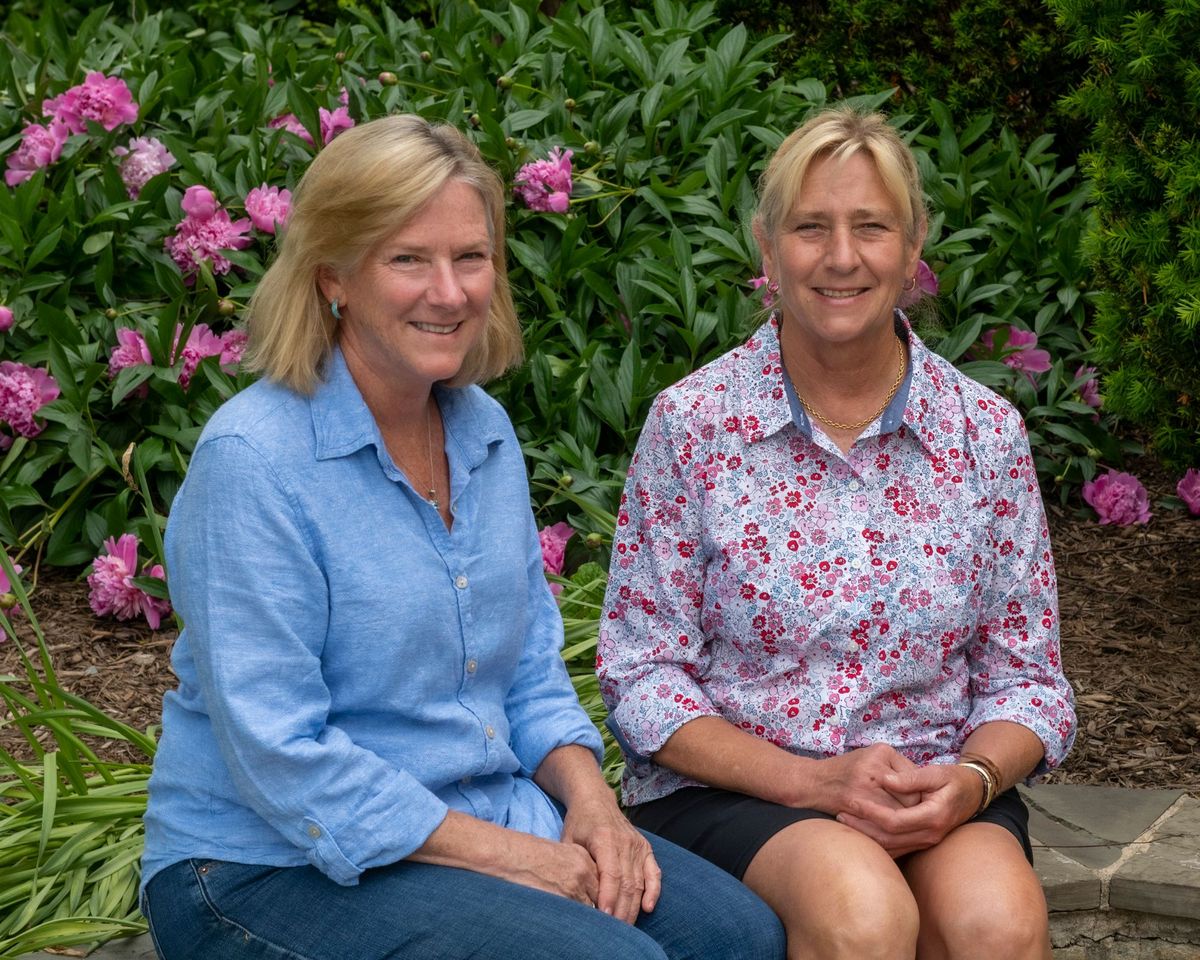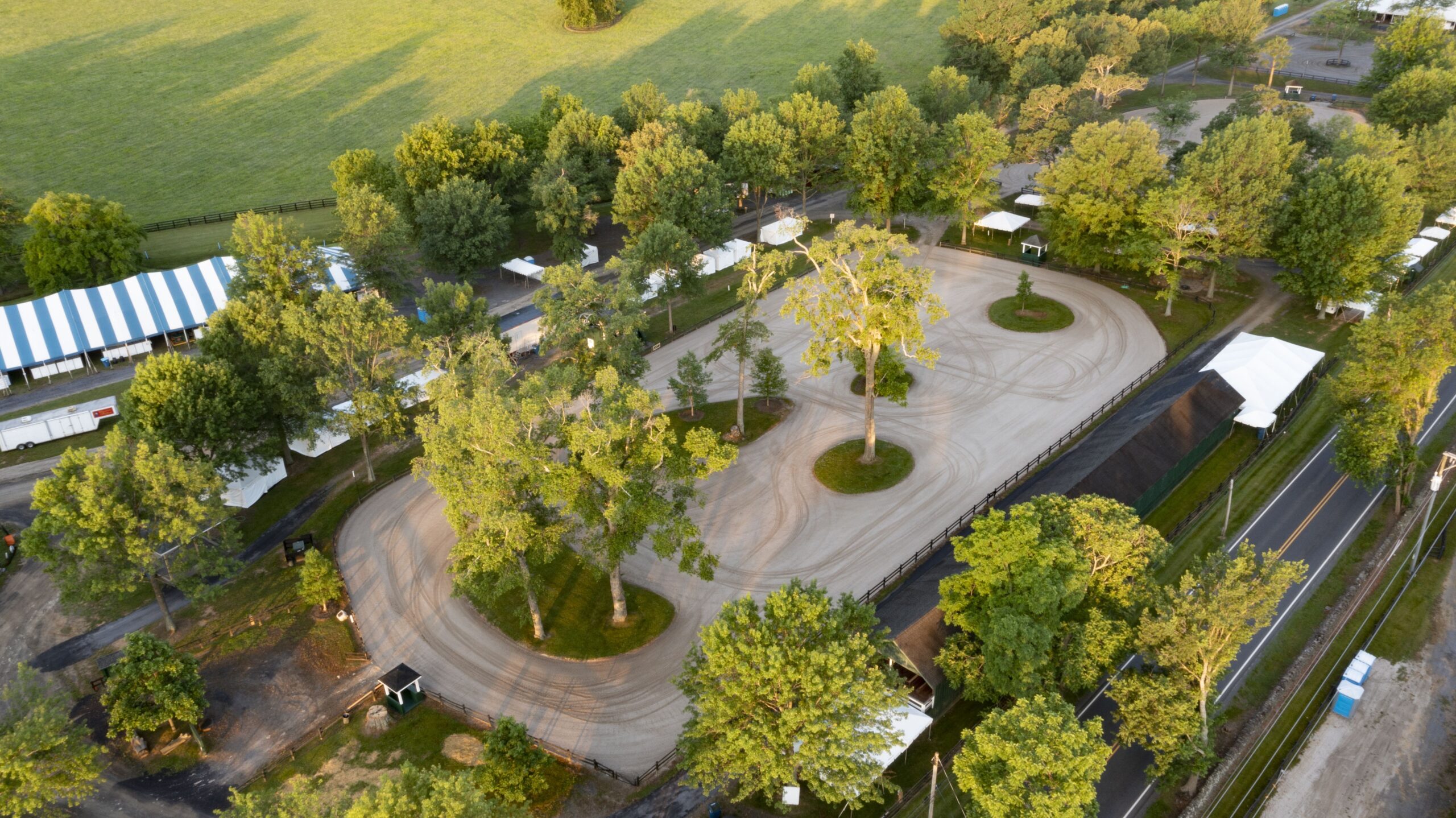A National Campaign and Local Effort for Greener Horseshows

Written by Kaitlin Hill
More than historic, the site of the Upperville Colt & Horse show is undeniably green. The sloping lawns, towering hundred-plus year-old trees, and the familiar evergreen paint on nearly every structure all contribute to a feeling of being one with nature upon entering the gates of the showground. And in recent years, there have been efforts to make Upperville even greener by operating the show with environmental impact in mind, led by a national campaign called Green is the New Blue and aided by local efforts supporting the cause.
Founded by amateur equestrian Stephanie Riggio Bulger, Green is the New Blue (GNB) partners with horse shows across the country to reduce the impact of equestrian events can on the planet. Emily Cleland of GNB shares, “With year-round horse show circuits available to us, we are such a transient population. And in the effort to get from show to show, we just don’t realize the amount of waste we produce, especially in the form of plastics: supplement tubs, shavings bags, twine, water bottles… just for one horse and rider, it really adds up.”

As the oldest horse show in the nation, it seems appropriate that Upperville was also Green is the New Blue’s original partner. Cleland says, “Upperville was actually our very first horse show partner!” She adds, “Its management team has made such a commitment to the future with their forward-thinking approaches to sustainability.”
Caitlin Lane, executive director of Upperville Horse Shows, LLC notes, “We have been working with Green is the New Blue for a few years to develop a sustainability program. We’ve been brainstorming with them on how to expand the program and get more people involved, more sponsors.”
For this year’s show, the team at UCHS and GNB connected with Maria Eldredge and Anne McIntosh of Middleburg Real Estate and Atoka Properties. Lane shares, “In talking with Middleburg Real Estate, we put forward the idea that we wanted to add these hydration stations and it would be something new this year.”
Coincidentally, Eldredge explains, “Middleburg Real Estate had just come up with a new program where, as agents, if we wanted to sponsor something we could, and we’re trying to do more locally.” A single-use to reusable convert herself, Eldredge jumped the idea of sponsoring the hydration stations and partnered with McIntosh and Middleburg Real Estate to cover the $10,000 project. She says, “Instead of selling thousands of [single-use] plastic bottles, there will be tents set up with bamboo cups. You can refill your water bottle and there will be bigger jugs of water.”

This latest initiative is one of many that Upperville has adopted to reduce its environmental impact. Lane says, “We are doing wider facility recycling. We’ve been able to recycle the shavings bags which is a big source of plastic for us. We are trying to work on where the manure goes after an event, how it can be reused.” She adds, “We’re really looking at how we can be more sustainable. It’s deliberate choices on what products we can use and how we can set things up to reduce our footprint…Ideally, we are helping spread [the idea] to other events across the country.”
Cleland adds, “We want to see horse shows and facilities adopt initiatives that are reasonably actionable in their geographic areas. There’s no ‘one size fits all’ — some municipalities simply don’t have recycling programs for show organizers to utilize, for instance. Some facilities have the means to tackle issues like erosion and water runoff that other facilities don’t. That said, recently we’ve been inspired by the horse shows like UCHS that have substantially cut their use of single-use plastics by committing to water refill stations with compostable cups. That choice alone produces exponentially less plastic waste.”
In addition to national campaigns and locally sponsored programs, an impact can be made on an individual level too. Cleland says, “Make a habit out of bringing your own refillable water bottle to horse shows and everywhere you go! Be vocal! Let your horse show organizers and venue managers know that sustainable practices are important to you.”
As horses, trainers, and spectators show up June 6 through 12 to enjoy the 169th Upperville Colt & Horse Show, they will take part in the new green legacy of this historic event, as Cleland says, “to preserve our planet for generations of equestrians to come.” ML
This article first appeared in the June 2022 Issue.








